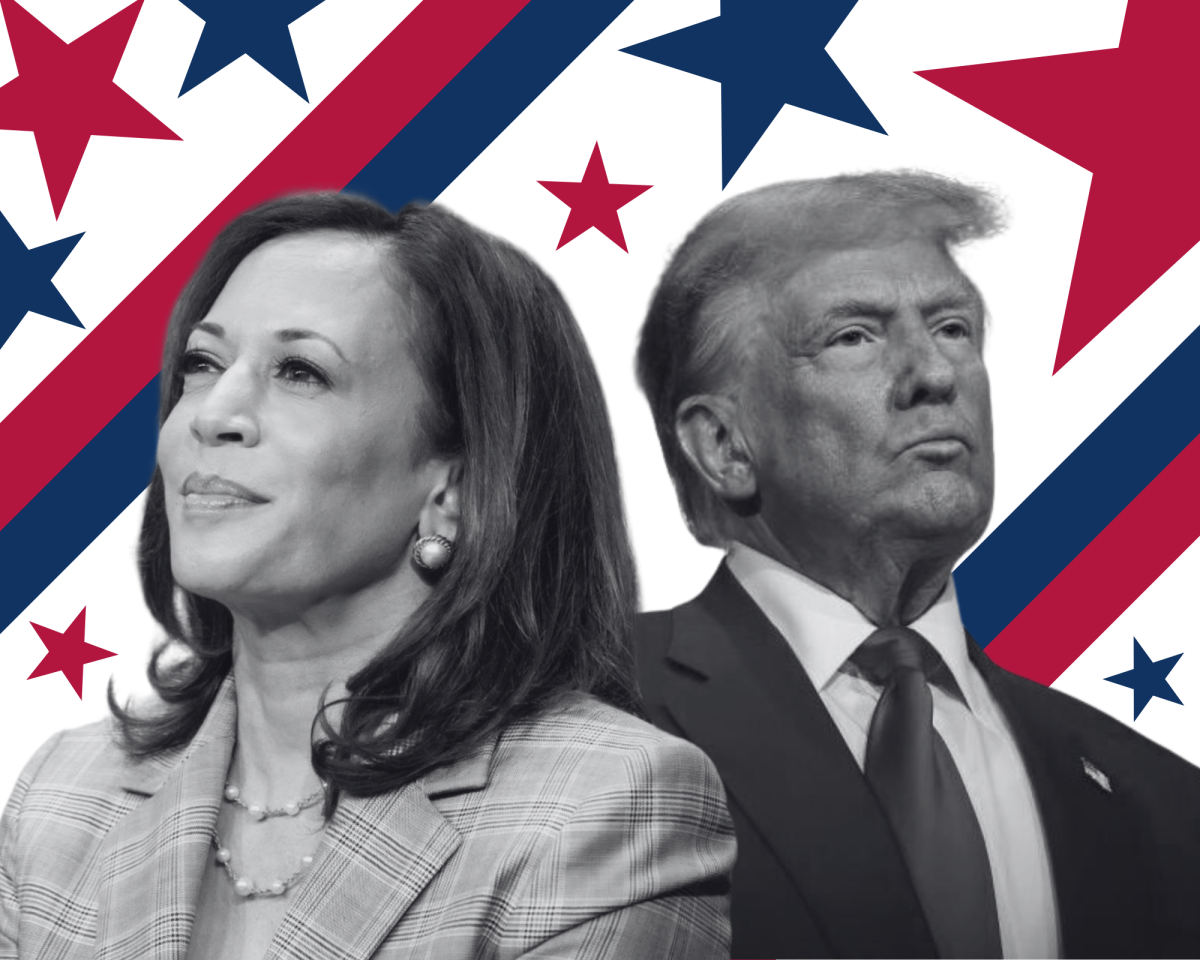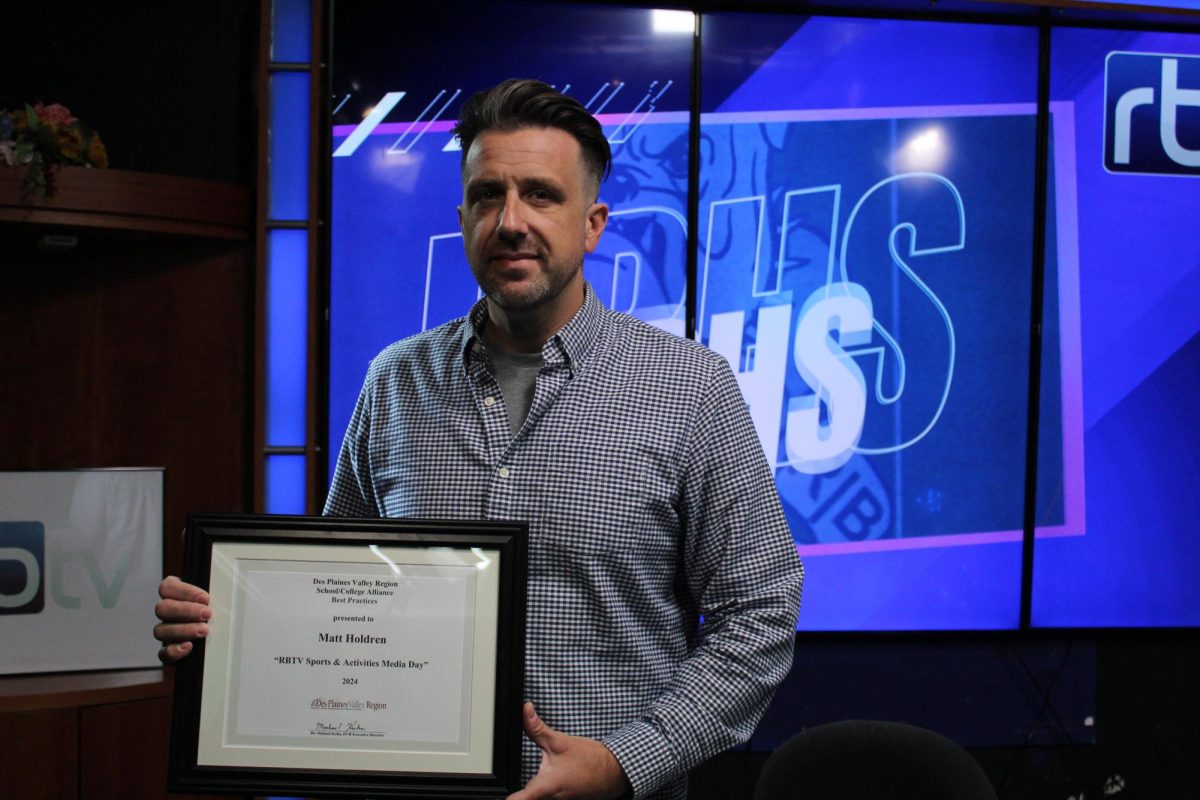On November 5, Election Day took the country, and even the world, by storm. Every American had their opinions surrounding the election, whether or not they voted for Vice President Kamala Harris, former President Donald Trump, or third party frontrunners. One day after the election, mixed emotions flooded the halls of RB on November 6. Yet over the past month, some feelings of optimism and frustration have settled, while others are now stronger than ever.
At RB, we have a diverse staff and student body who desire to communicate their perspectives in different ways and forms. As a result, there were varying reactions toward the election results, especially between students. Senior Zoe Hernandez shares a more left-leaning view.
“I was clearly very disappointed with the results of our election,” Hernandez said. “I was disappointed with the American people for their blatant sexism. In fact, there was a historical number of white men that came out to vote. I am very disappointed at how we completely overlook morals for the place of extreme values and ideas. The winner is quite literally a convicted felon, and am very appalled and mortified to be part of this nation; however, unfortunately, I am not surprised, knowing the place that country has been going to and understanding how people begin to be more influenced, and how as we become more progressive as a society, there remain those extremists that only polarize their opinions to even further and excessive actions.”
On the other end of the political spectrum, junior Ryan Gibbs shared a sense of surprise at the initial results released just a month ago.
“It was a little shocking that Donald Trump won all of the swing states,” Gibbs said. “I thought he wouldn’t get all of them, but he did, which was shocking for me. I’m a little bit more conservative when it comes to some things: the Second Amendment and more of immigration.”
Similarly to Gibbs, there lies a lingering surprise for staff even one month after the election, including social sciences teacher John Beasley.
“I wasn’t surprised that Trump won, I was surprised that he won the popular vote,” Beasley said. “What I found fascinating was the fact that the Democrats are struggling to really connect with voters about economic issues, but ultimately I think what we all failed to realize [that] you have a president whose approval rating is 38% to 40%.”
For many, this election played a critical role in influencing their lives.
“I’m pretty happy with it because of my dad’s company,” Gibbs said. “[We get] a bit more benefits through how his company is lined up with [it] being blue collar. He owns an elevator company, which is one of the top paying unions. In the US, just having more of a Republican president, that helps it out.”
For students, reflecting on influences is crucial to understanding where you have stood and where you now stand in terms of the political spectrum, one being social media.
“Stuff that is on social media I really didn’t believe because I know that a lot of things get twisted on both sides,” Gibbs said. “I went back and did some research if I saw something, so it really didn’t have any effect.”
While Gibbs expressed skepticism toward social media’s influence, others such as Hernandez highlighted its undeniable role in shaping political discourse during this election and eventually beyond.
“I think social media has played a big role in this election,” Hernandez said. “As we’ve been getting more online, it’s inevitable it would be a tool in influence. This could be seen with Trump’s features on the Aiden Ross Twitch stream, TikToks, the McDonald’s publicity stunt, and other attention grabs throughout through the election.”
For many during the election, the issues at the forefront of many American minds were abortion, immigration, and inflation. For Hernandez, her mind was set on women’s rights, foreign affairs, and the economy.
“For me, the most important topics were women’s reproductive freedoms, the global conflict happening in Ukraine and Palestine, and the struggling economy for the middle-class, especially access to affordable healthcare,” Hernandez said. “Both candidates had a difficult time addressing the subjects head on, but I will say I felt as [though] both of them were also able to adequately articulate their ideas and their plans, showing their priorities and stances; however, I still question the validity to Trump’s plans, given his history of misinformation.”
While Gibbs echoed support to a pro-choice point of view, his priorities were set on immigration as well.
“I’d have to go [with] more of the women’s rights because I have four sisters,” Gibbs said. “Trump [is] doing a mass deportation of illegals. The main [group] he’s starting with [is] criminals, the ones that are already in jail.”
In the classroom, as conversations spark and homework is assigned, there lies a slight struggle to maintain an unbiased perspective.
“I think it’s differentiating between I, on one hand, not being ideological and trying not to push either a liberal or a conservative mindset, but also admitting when our leaders are acting in ways that are not necessarily admirable,” Beasley said. “Sometimes that’s a challenge, trying to differentiate between arguments that aren’t necessarily economically honest. You can say that for both sides, like you could say that Trump, I would argue, does not talk about how tariffs really work. On the other hand, Harris was not honest that price fixing has never really worked.”
In comparison to past elections, the 2024 presidential election experienced a lack of young voters, impacting student engagement with the result.
“Our system, ultimately, is really frustrating, but in that frustration comes guard rails away from both extremes that prohibit both extremes from happening,” Beasley said. “I’m hopeful about that. I’m a little bit concerned that young people didn’t show up the way they have in previous elections.”
Over the last month, there has been a lack of conversations sparked in the classroom. However, political elections will likely make an appearance in the school environment.
“Very little [discussion occurred],” Beasley said. “I would say that during the Obama years, and during and also after 9/11, during the Bush years, I think we saw more outward discussion. There wasn’t as much discussion in my economics classes, at least about politics, among my students. When I’m teaching gov[ernment], I always try to do an election where they run the candidates against each other. I think that’s something that is really helpful to have students really think about how the two parties are approaching the election. I think that in general, I’m trying to figure out how to approach that.”
As for the future of the country, there lies the question of whether or not America will elect a woman as their president.
“I will say there is a question whether being a woman affected her with young men especially,” Beasley said. “You see other countries like Mexico electing women, and Great Britain elected a woman a while ago. I don’t know to what extent it has to do with her being a woman, or if it’s just that it doesn’t matter who it was, that somebody following as vice president would have had no chance.”
For the next generation of voters, the electoral processes could have an impact on one’s perception of their vote.
“The fact is that the electoral college system as it currently works really dissuades people from feeling like they make a difference in a presidential action,” Beasley said. “The system in some respects is not encouraging people to be really involved.”
In terms of the election, students, especially those here at RB, should fight to let their voice be heard.
“They need to be able to be confident that the person that they put in the Oval Office has at least some substantiated claims, that they will be able to actually help America grow and prosper,” Hernandez said. It’s easy to go along with the flow, but we need to think for ourselves.”








